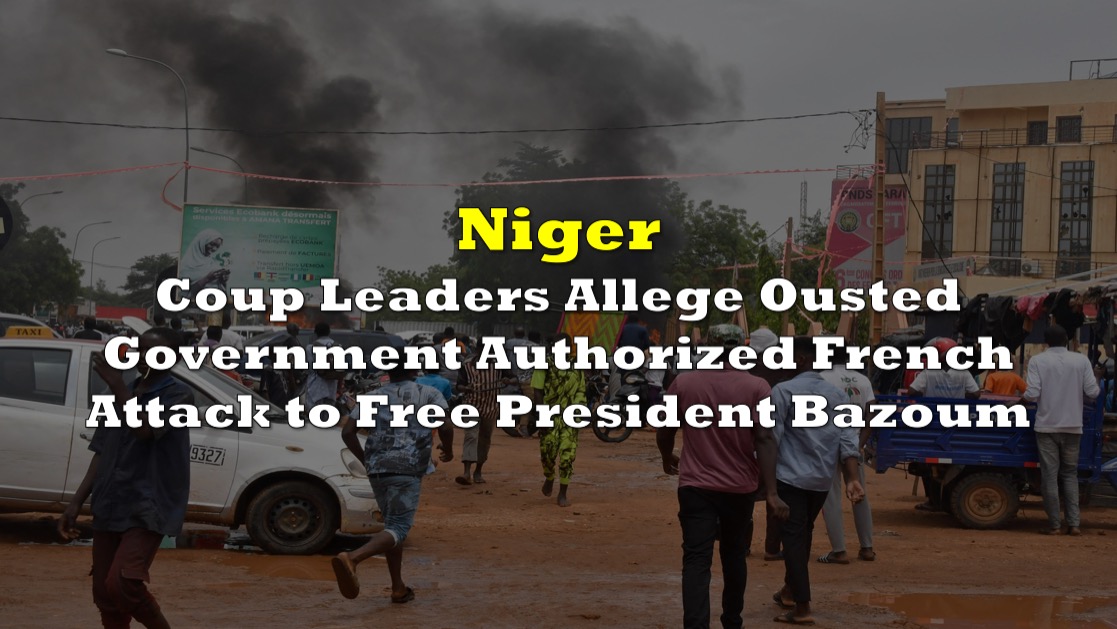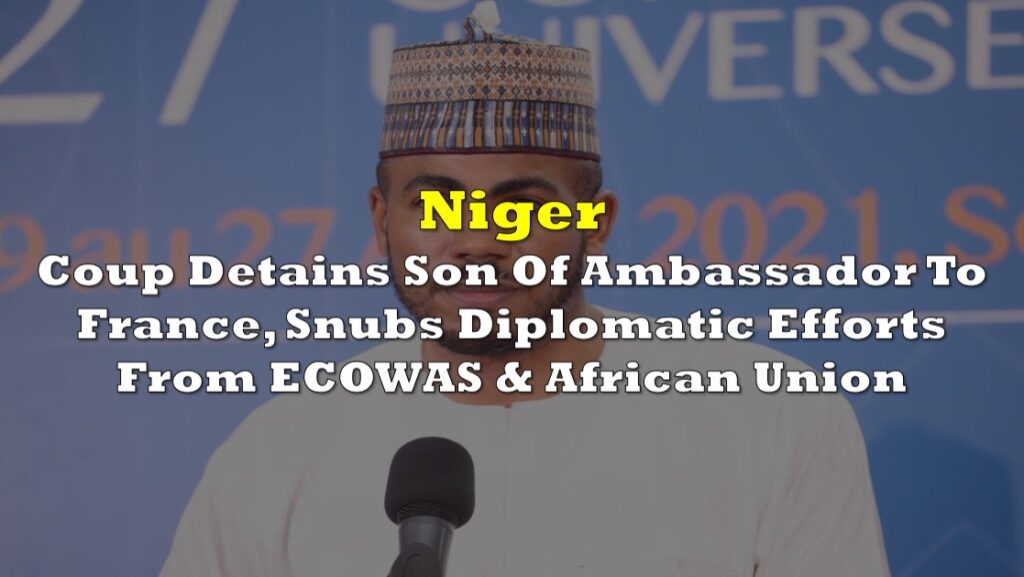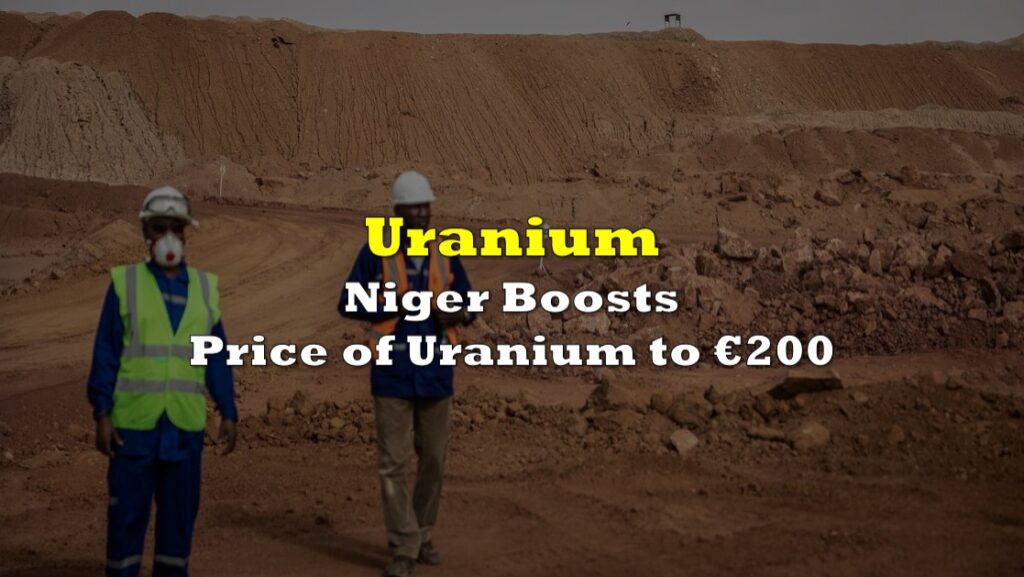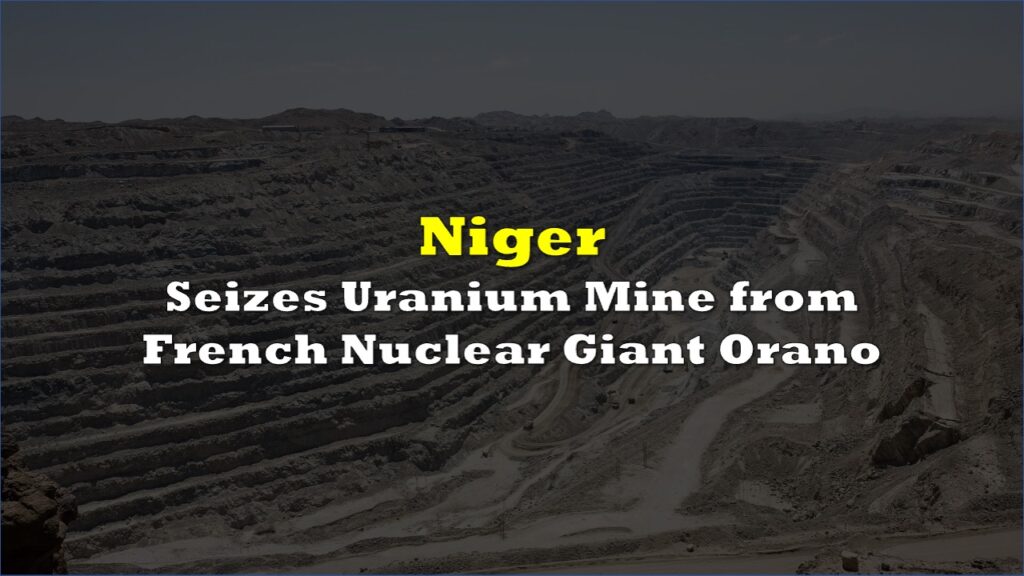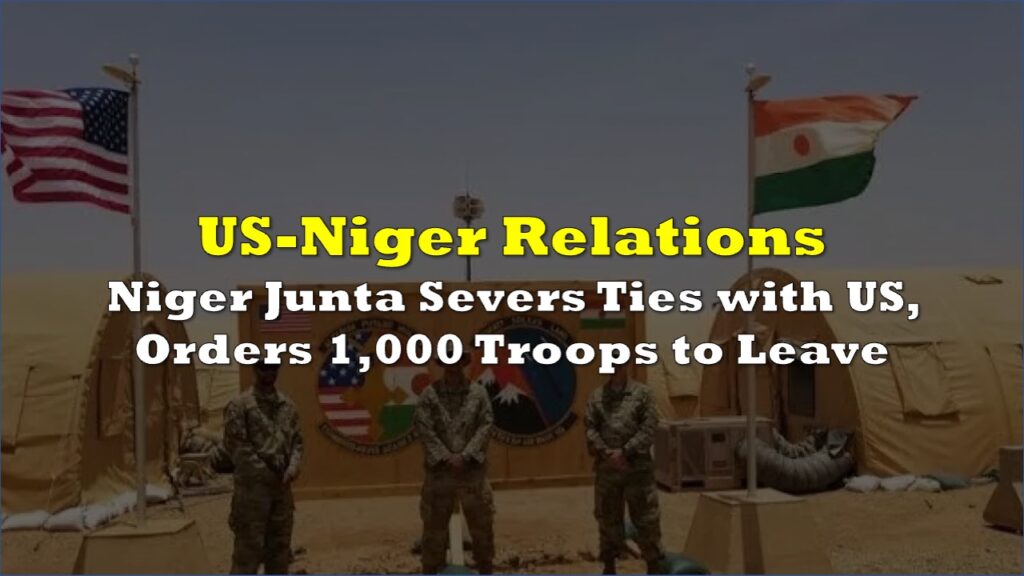Last week’s coup in Niger has brought forward serious allegations from the new regime. The coup leaders claim that the deposed government had granted authorization to France for an attack on the presidential palace, aiming to free President Mohamed Bazoum.
Colonel Amadou Abdramane, one of the coup plotters, made these claims during a broadcast on state television. According to him, the authorization was signed by Foreign Minister Hassoumi Massoudou, who was acting as the prime minister at the time. However, these allegations could not be independently verified, leaving many questions unanswered.
The junta, now in control, accused the ousted government of granting authorization to France for an attack aimed at freeing Bazoum. Gen Abdourahmane Tchiani, head of the presidential guards unit, declared himself Niger’s new ruler on Friday.
The whereabouts of both Massoudou and Bazoum remain unknown since the coup. France, Niger’s former colonial ruler, has denounced the coup and called for Bazoum’s reinstatement, but they have not expressed any intent to intervene militarily.
When asked about the allegations, the French foreign ministry neither confirmed nor denied them. Instead, they reaffirmed their recognition of Bazoum as the legitimate authority in Niger, and they emphasized their priority to ensure the safety of their citizens and facilities, as mandated by international law.
The coup leaders, who blocked Bazoum inside the presidential palace in Niamey before seizing power, previously warned against any foreign attempts to extract the president. They stated that such actions would lead to bloodshed and chaos.
ECOWAS
Adding to the complexity of the situation, the Economic Community of West African States (ECOWAS), a 15-nation regional bloc, has demanded Bazoum’s reinstatement within a week. During an emergency summit in neighboring Nigeria, ECOWAS declared that it would take “all measures” to restore constitutional order if their demand is not met. They even mentioned the possibility of using force to achieve their objective.
ECOWAS member states are:
— Faytuks News Δ (@Faytuks) July 30, 2023
– Benin
– Cape Verde
– Gambia
– Ghana
– Guinea-Bissau
– Ivory Coast
– Liberia
– Niger
– Nigeria
– Senegal
– Sierra Leone
– Togo
ECOWAS was established on May 28, 1975, by fifteen West African countries, with the mission of promoting economic integration in the region. The region covers an area of 5.2 million square kilometers and comprises fifteen member states.
ECOWAS aims to achieve collective self-sufficiency among its member states and create a single, large trading bloc through economic cooperation. It focuses on various economic activities, including industry, transport, telecommunications, energy, agriculture, natural resources, commerce, monetary and financial issues, as well as social and cultural matters.
The commission is working on strategic programs to enhance cohesion and remove barriers to full integration, ultimately aiming for “ECOWAS of the People: Peace and Prosperity to All” by 2050.
The headquarters of ECOWAS is located in Abuja, Nigeria.
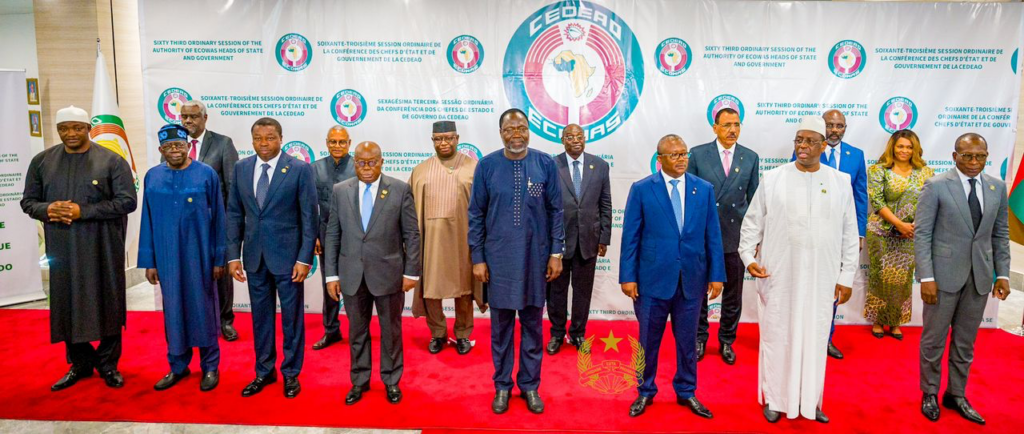
African Union
The ECOWAS declaration follows the African Union’s 15-day ultimatum to the junta in Niger, demanding the reinstallation of the country’s democratically elected government. Brig. Gen. Mohamed Toumba, one of the soldiers involved in ousting Bazoum, revealed that the junta met with civil servants on Friday and instructed them to continue their work despite the suspension of the constitution. He stated, “The message given was not to stop the processes underway, to keep on with things.”
The regime led by Gen. Abdourahmane Tchiani, also known as Omar, intends to remain in power, and “everything that must be done will be done,” he further asserted.
Following their meeting on Friday, the African Union Peace and Security Council expressed concern about the “alarming resurgence” of coups that pose a threat to democracy and stability on the continent. They urgently called on the soldiers to “return to their barracks immediately and unconditionally” and to restore constitutional authority within a maximum period of fifteen (15) days.
So now ECOWAS is giving Niger's ruling junta a week to step down and hand over former president Bazoum.
— Casus Belli (@casusbellii) July 30, 2023
After 7 days they will authorize the use of force if nothing is done.
The declaration follows that of the African Union, which gave the putschists 15 days to leave power… https://t.co/hapcyDz6qZ
Chadian President Mahamat Idriss Deby visited Niamey as an ECOWAS envoy and held separate meetings with Bazoum and Tchiani. Amidst the escalating situation, Déby aims to find a peaceful solution to the crisis shaking Niger, a country bordering Chad. While he did not provide specific details, a photograph was released showing him sitting next to a smiling Bazoum during their meeting.

Source: BBC
In response to the coup, ECOWAS imposed strict sanctions, including the suspension of all commercial and financial transactions between its member states and Niger, as well as the freezing of assets in regional central banks.
These economic sanctions could have a severe impact on Niger, one of the world’s poorest countries, which relies heavily on imports from Nigeria for up to 90% of its power, as reported by the International Renewable Energy Agency.
🇳🇪 ECOWAS demands the restoration of constitutional order in Niger and the reinstatement of President Bazoum as head of state. If these and other ECOWAS demands are not met within a week, Ecowas is talking about the possible use of force to enforce them pic.twitter.com/TT0iW9WOTk
— Intermarium 24 (@intermarium24) July 30, 2023
Sanctions and Russia
Prime Minister Ouhoumoudou Mahamadou acknowledged the potential disaster these sanctions could bring to Niger. In an interview with French media outlet Radio France Internationale, he stressed the country’s heavy reliance on international support and called for finding a solution to avoid the adverse effects of the embargo and border closures.
The junta also announced the immediate suspension of uranium and gold exports to France, as Niger is the world’s seventh-largest producer of Uranium. This move has raised concerns that Niger, a significant Western ally in the fight against jihadist groups in West Africa, might pivot towards Russia. Neighboring countries Burkina Faso and Mali have also shifted away from France and towards Russia after staging their own coups in recent years.
Protesters outside the French embassy in Niamey chanted “Long live Russia,” “Long live [Russian President Vladimir] Putin,” and “Down with France” on Sunday. In addition, they set fire to the walls of the embassy compound. President Emmanuel Macron’s office stated that France would not tolerate any attack on its interests in Niger and would respond in an “immediate and intractable manner.”
#BREAKING – #French Embassy in #Niger set on fire after protests. pic.twitter.com/nwqE4gRJ9p
— Al Sura (@AlSuraEnglish) July 30, 2023
🇳🇪 The French embassy in Republic of the Niger is under siege. Protesters are trying to break into the building.
— Intermarium 24 (@intermarium24) July 30, 2023
Protesters support the military coup while chanting praise to the Wagner Group and waving Russian flags.#RussiaIsCollapsing #Russian #france #niger #ukraine pic.twitter.com/AoCGiKGluE
Despite the demands and potential consequences, the junta has remained silent. They have, however, made it clear that they will defend Niger against any aggression from regional or Western powers, accusing France of planning military intervention. Notably, France and the US have military bases in Niger.
In a recent tweet, US Secretary of State Antony Blinken expressed his strong endorsement and support for the leadership of ECOWAS Heads of State and Governments as they stand to defend constitutional order in Niger. Blinken emphasized the urgent need for the reinstatement of the legitimate and democratically-elected government, urging immediate action to restore democratic governance in the country.
I strongly welcome and support the leadership of ECOWAS Heads of State and Governments to defend constitutional order in Niger. The legitimate, democratically-elected government must be reinstated immediately.
— Secretary Antony Blinken (@SecBlinken) July 30, 2023
Niger, a landlocked nation, has a history of political turmoil since gaining independence in 1960, with several coup attempts in the past, including two against President Bazoum before the current coup.
Africa: Land of coups
Stretching over 3,500 miles, from coast to coast, Africa’s coup belt has emerged as the longest corridor of military rule on Earth, spanning six countries. Niger recently witnessed the final domino falling in this band of military takeovers, which now extends from Guinea in the west to Sudan in the east. Nearly all these countries have experienced coups in the past two years, leaving them under the control of juntas.
The coup in Niger has far-reaching implications, particularly in the fight against Islamist militants in the Sahel region. The Sahel, a vast and semi-arid area, has become the global epicenter of jihadist violence, with groups affiliated with Al Qaeda and the Islamic State gaining ground rapidly. Niger was a cornerstone of the United States’ regional strategy, with American troops stationed in the country and drone bases built at significant costs. However, the coup puts all of these efforts at risk, leading to questions about the future of U.S. financial support and security cooperation with Niger.
Russia has also shown an interest in the region, with coup supporters waving Russian flags in Niamey, much like what was seen in Burkina Faso after a previous coup. Although these flags don’t necessarily indicate direct Russian involvement in the coups, they symbolize Russia’s position as an anti-Western and anti-French influence in Africa. Putin’s recent proposals at an Africa summit in St. Petersburg raised concerns, especially considering the actions of Russian mercenary group Wagner in Mali, Sudan, the Central African Republic, and Libya.
While geopolitical maneuvering may play a role in the coup belt’s dynamics, the underlying factors behind the coups are rooted in a mix of local issues. The justifications for these takeovers have varied, citing public anger at corruption in Guinea and claiming to address the rise of Islamist militancy in Mali and Burkina Faso. However, these military juntas have failed to bring stability and have actually exacerbated insurgent violence.
Several common factors contribute to the vulnerability of the region to coups and instability. Weak states, high poverty rates, soaring birthrates, and a significant youth bulge create fertile ground for discontent and unrest. Most coup-makers are relatively young compared to the continent’s average leaders, and African countries have witnessed a total of 98 successful coups since 1952.
Niger seemed to be making progress under Bazoum, who was actively combating militants and receiving support from the armed forces. However, personal tensions with Tchiani within the presidential guard may have triggered the recent mutiny that led to the coup.
Information for this story was found via The New York Times, AlJazeera, BBC, and the sources mentioned. The author has no securities or affiliations related to the organizations discussed. Not a recommendation to buy or sell. Always do additional research and consult a professional before purchasing a security. The author holds no licenses.

